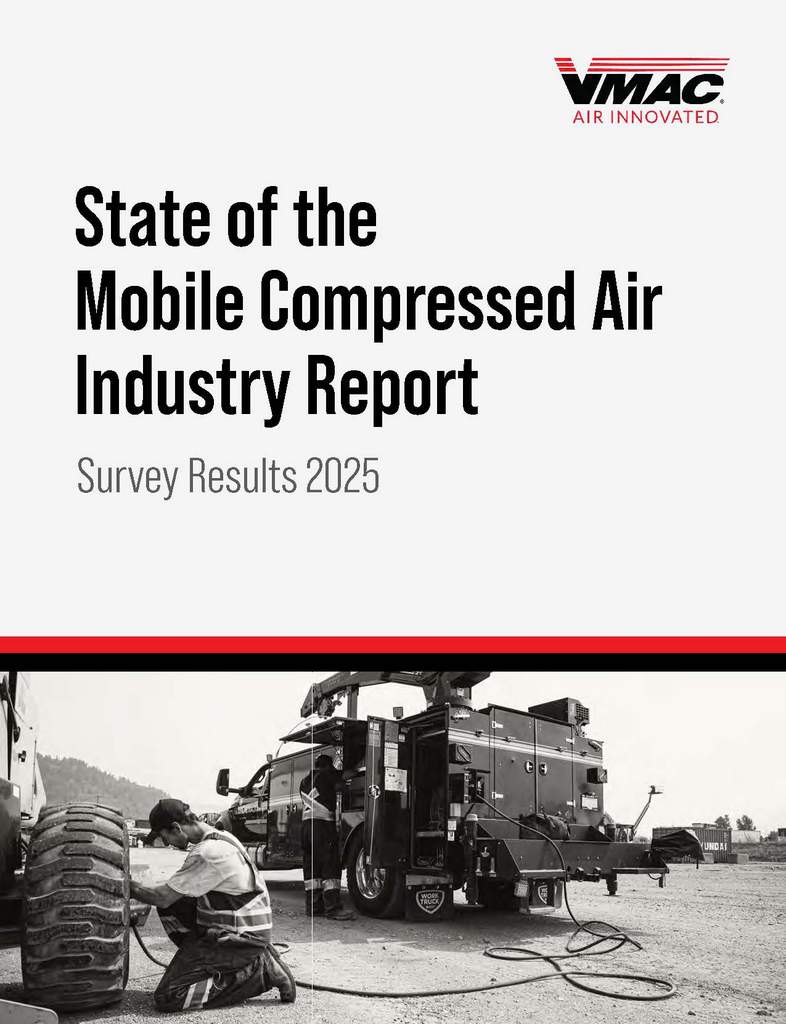How to Winterize an Air Compressor
The wrath of Old Man Winter will soon be upon us and if predictions come true, the winter of 2013/14 will be a brutal one for many areas of the country. It’s not surprising that some air compressor owners may consider themselves exempt, given that normal winter conditions in
warmer geographies aren’t as severe and theoretically unlikely to create damage. But there’s no region of the country where operators shouldfeel immune.
“There are very few places — even Florida — that don’t get some level of freezing weather,” says Steve Sadler, supervisor of field services with Doosan Portable Power. “This has already been such a weird year that anything’s possible. But regardless of whether or not it actually freezes where you live, most winterization service recommendations are also basic, solid maintenance procedures that will help extend the life and operational efficiencies of air compressors … regardless of whether you live in northern Minnesota or southern California.”
Sadler recommends using a refractometer to test the coolant for the most accurate reading. Coolant mixture recommendations for different air compressors will vary by ambient temperature. The concentration of supplemental coolant additive (SCA), which protects against scale, corrosion and liner pitting in diesel engines, should also be tested. If equipped with an engine coolant filter, the filter should be replaced according to manufacturer-recommended service intervals as buildup of abrasive materials, debris and other contaminants clog the filter,
greatly reducing its effectiveness.
If equipped, all 24VDC heaters should be checked at each component while powered on. If applicable, all 120VAC heaters — such as a block heater,
oil pan heater and battery pad heater — should also be checked by plugging into a 120VAC supply to confirm all are operational. A heater for the crankcase breather tube may be required and should also be tested. Check non-maintenance-free batteries to ensure specific gravity is correct and inspect all battery terminals for rust, corrosion and secure connections. Battery cables should be inspected for any signs of wear or damage. It’s also a good idea to check with fuel suppliers to make sure they are providing winter blend diesel fuel versus standard No. 2 diesel commonly used in spring and summer.
Different engine oil weights will likely be required for different climates and will vary based on different ambient temperature exposure. Refer to the operator’s manual to determine which weight of oil is recommended for the engine equipped in your specific model of air compressor. Aside from engine oil, it’s also important to use the correct airend lubrication oil for the ambient temperature as specified by the lubrication chart in the operator’s manual.
Inspect all hoses and belts for wear and cracks, remembering that cold weather is especially hard on rubber. That said, if the air compressor will be operational in cold climates over the winter months, checking hoses and belts should be part of a daily inspection routine. Replace as necessary to alleviate delays, downtime or unnecessary repairs at the jobsite. Winter can also be especially hard on tires, so it’s important to check for proper inflation pressure. Cold weather condenses rubber and may cause air to escape without warning. Cracks resulting from cold weather will usually occur in the sidewalls.
The use of ether to “jump start” diesel engines is not recommended for many electronically controlled engines as it can result in significant damage and compromise operator safety. Again, the best advice is to check with the engine manufacturer before using ether in any electronically controlled engine. If equipped, check to make sure the intake heater or glow plugs are operating properly.
“As a general rule, if the air compressor will not undergo daily use during winter months, it’s a good idea to start it and let it run until reaching normal operating temperature, at least once every month, especially in areas where the ambient temperature will remain well below the freezing point for extended periods of time,” says Sadler.
Randy Happel is a features writer for Two Rivers Marketing, based in Des Moines, Iowa.




